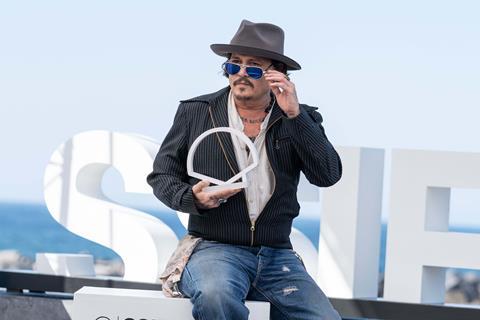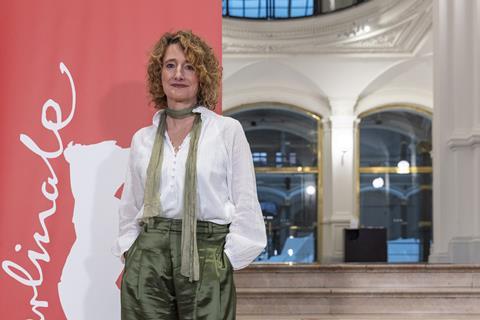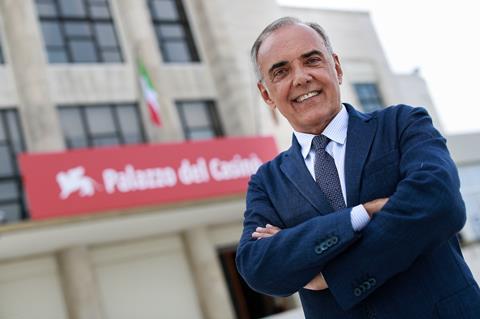
When a group of freelance film journalists attending Venice Film Festival in August were told that some of the biggest stars at the festival would not be doing any press interviews on the Lido, they took action.
Italian freelance journalist Marco Consoli began a Facebook campaign that evolved into an open letter to festival management signed by more than 50 journalists. No official reason was given for the lack of access but it was particularly true for the stars of films for which key distribution deals, and thus global marketing strategies, were not in place.
A few weeks later at San Sebastian International Film Festival, Consoli was one of 12 journalists who abandoned a press junket for Johnny Depp’s Modi: Three Days On The Wing Of Madness following a last-minute reduction in the time press would get with the high-profile Depp.
Star interviews generally form the bulk of earnings for freelance film journalists, who tend to personally shoulder the costs of attending a festival. It affords them to also write about the smaller films with no stars that are a much harder pitch to arts editors faced with ever-shrinking commissioning budgets.
Consoli is alarmed at how the relationship between festivals, journalists, stars and their gatekeepers is being managed. “Without an international press, there wouldn’t be the global echo that festivals need,” says Consoli. “Film journalism and debate about films will come to an end. Then journalists and publicists will be unemployed, festivals will become irrelevant to the audience and sponsors will leave. Films and talents will not be an expression of culture and artistry but just a piece of forgettable content.”

Festival directors tend to agree with him. “Freelance journalists are hugely important to the Berlinale,” says the festival’s incoming director Tricia Tuttle. “They are usually among the most passionate cinephiles that get a wide range of films covered.”
Tuttle is one of a growing number of festival directors pledging to do what they can to make sure A-list stars are available to reporters. “The issue is about the decline in space for a wide range of film journalism, including serious film journalism in non-specialist outlets,” adds Tuttle. “This is a conversation we’ve been having for more than a decade. It started with journalism in broadsheets, in newspapers, being only focused on celebrity rather than formal criticism.”
Kristy Matheson, Tuttle’s successor as BFI London Film Festival (LFF) director, spoke to Screen International immediately after the close of its 2024 edition, which accredited 800 journalists. “Freelancers are a vital part of the PR campaign for the festival,” she said at the time, noting LFF begins talking to press three months before each edition. “We engage with those who not only specialise in film, but also across arts, culture, news and current affairs to ensure we are negotiating access where possible and enabling them to profile as many of the films across the programme as possible.
“For films without distribution, having strong reviews and media coverage can lead to a successful distribution deal,” she continues. “Great coverage during LFF can boost a film’s release campaign.”
Matheson says the festival is “very mindful” of distributor release strategies. “While we want to make maximum impact for the LFF premiere, we also understand that films with a release date many months ahead will want to hold back some of their press coverage.”
Angelina Jolie for Maria and Daniel Craig for Queer were two of the high-profile actors unavailable for Venice interviews. Both films were produced by Fremantle.
“We organise press junkets whenever possible, as they are a vital part of a film’s publicity campaign,” says Matthew Sanders, Fremantle’s vice president, global film publicity and development. “Many other recent Fremantle-produced films have had press days at festivals, including Limonov: The Ballad Of Eddie, Parthenope and Priscilla. It’s not always possible to do this at a festival but the cast and filmmakers of Maria and Queer have participated in junkets and various press opportunities in the weeks following Venice.”
Working on the issue

Speaking six weeks after Venice, festival director Alberto Barbera says he has raised the topic of festival interviews with the Motion Picture Association, which represents the five US studios as well as Netflix and Amazon. “They are aware of the importance of the issue, so we are looking forward to discussing this and trying to get a better handle on it,” he says.
While declining to comment specifically on the Depp issue, San Sebastian director José Luis Rebordinos explains the Spanish distributors of festival films have “a lot of influence on the amount of press that A-list talent do at the festival”. Rebordinos reveals: “We have started reaching an understanding with the Spanish distributors before the selection of films. We will see if this leads to satisfactory results in the next edition.”
Locarno Film Festival has “standard requests that are the same for each awardee or invited guest”, says festival director Giona A Nazzaro, but they treat each attending talent according to their own needs. “I am a film critic myself, so I understand why journalists are concerned. Film criticism and film journalists are crucial elements of the festival landscape.”
Enthusiastic participation of high-profile guests is essential for festivals catering to a regional audience. Karlovy Vary artistic director Karel Och and executive director Krystof Mucha make regular trips to the US to represent their event. Och sees the relationship the festival has with A-list stars as key to offering the best possible media access and that the relationship works well without official contracts.
“We come up with a proposal, which is in most cases connected with a new film the stars want to promote,” says Och. “We don’t want to start something — which in most cases turns into a very mutually satisfying experience — with contracts.”
Och agrees with the freelancers’ statement, saying “without journalists as one part of the ecosystem, the ecosystem doesn’t work”.
An open programme is key for Sarajevo Film Festival director Jovan Marjanovic. He cites Q&As, retrospectives and red carpets as examples of his festival’s offering. “We have built the whole programme around access, both for audiences and journalists,” he says. “You cannot guarantee every journalist will gain access, but you can create open events for whoever wants to talk.”
Marjanovic says Sarajevo’s press strategy involves prioritising relationships with individual journalists. “We have been active in supporting people themselves, whether they come back to write about the festival for an established publication, or as freelance, or on their own. We are interested in people who write about films.”
Consoli says he is now in active discussions with festivals including Cannes, San Sebastian and Berlin. “We want these stakeholders to understand we’re doing our best to support films, actors, directors and festivals at the same time while we earn a living doing our job.”







![The Brightest SunScreen[Courtesy HKIFF]](https://d1nslcd7m2225b.cloudfront.net/Pictures/274x183/3/5/0/1448350_thebrightestsunscreencourtesyhkiff_312678.jpg)

















No comments yet